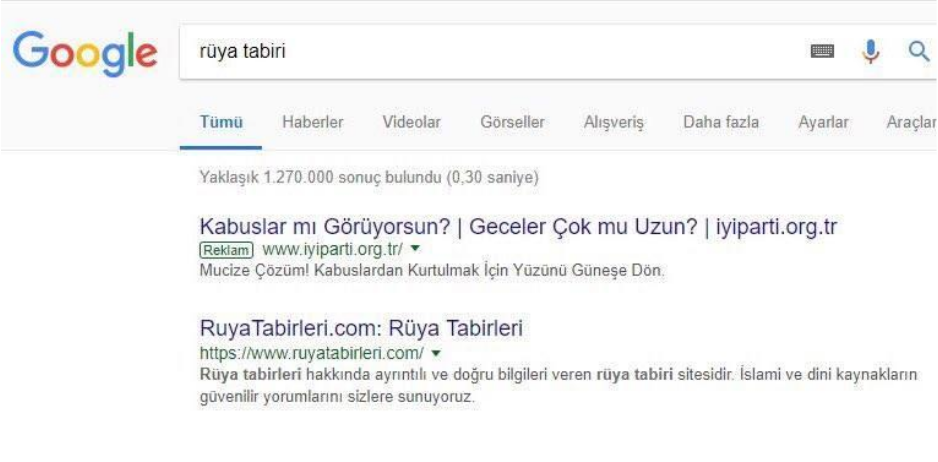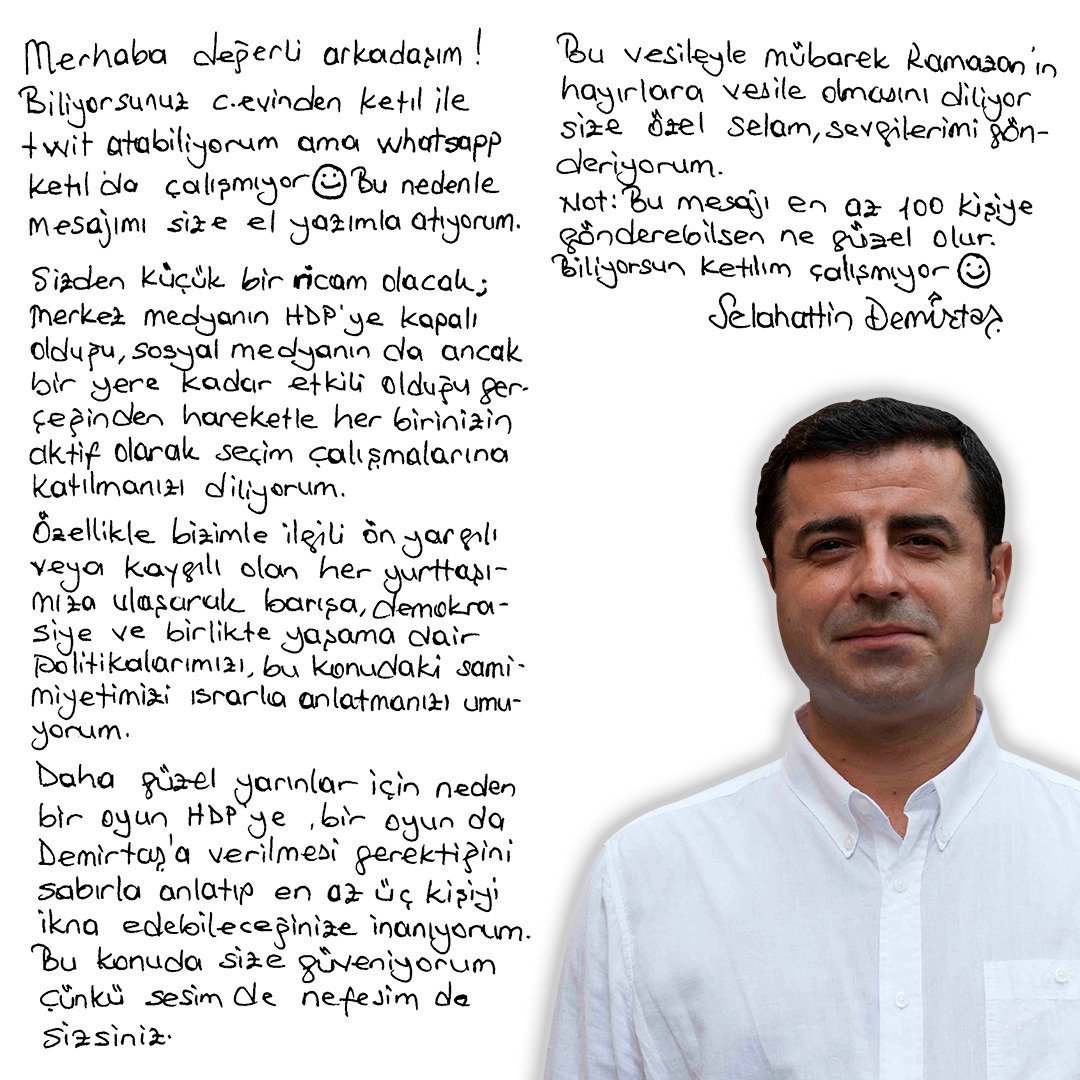
On June 24, Turkey takes to the polls in the highest-stakes elections in recent memory. Voters will vote in the parliamentary elections and the first round of the presidential elections. However, the elections are also about the country’s and Erdoğan’s political future. Every opposition party has stated in their program that they intend to overturn Erdoğan’s presidential system, accepted with razor-thin margin at last year’s referendum. Turkish voters will also decide on Erdoğan’s political fate. Polls state that besides a highly likely hung parliament, Erdoğan will have to face an opposition candidate on July 8 for the second round of the presidential elections. While the state of emergency is still in effect and the media is under Erdoğan’s tremendous pressure, the opposition is strategizing delicately to circumvent the omnipresence of the Turkish President and the ruling Justice and Development Party (Adalet ve Kalkınma Partisi, AKP hereafter).
In this context, AKP’s mainstream campaign is eclipsed by the opposition parties’ creative and sensational ways of disseminating their anti-Erdoğan message. While the opposition’s online strategy aims to be disruptive of one’s daily online activities, their anti-Erdoğan message is offering a future without Erdoğan’s despotism. In doing so, the opposition parties seem to be riding a new wave in political campaigning online, which focuses on specific groups of voters instead of generating online content for their own political clusters.
Background to the Turkish elections
The stakes are high for the anti-Erdoğanists in the country. The new election law accepted by the AKP in 2018 has increased the importance of the parliamentary elections. The new law allows alliances, and under the “People’s Alliance (Cumhur İttifakı)” the AKP is trying to hold onto the majority in the parliament with the help of Nationalist Movement Party (Milliyetçi Hareket Partisi)– the pro-Erdoğan fraction of the ultra-nationalists. They are challenged by the “Nation Alliance (Millet İttifakı)” which consists of Republican People’s Party (Cumhuriyet Halk Partisi, CHP hereafter), the secular vote; and the Good Party (İyi Parti hereafter), the anti-Erdoğan ultra-nationalist vote; as well as two other right-wing parties against Erdoğan. Their aim is to gnaw the Cumhur Alliance’s majority in the parliament.
However, according to the polls, the opposition’s goal will only materialize if HDP (Halkların Demokratik Partisi, HDP hereafter), the Kurdish and progressive left vote—left out of the Nation Alliance due to the İyi Party’s insistence—jumps over the hurdle of national election threshold of 10% and finds themselves seats in the parliament. In this political landscape, the İyi Parti needs to convert ultra-nationalists who are still willing to give Erdoğan a second chance, and HDP needs the progressive vote who don’t fully align with HDP’s policies but wants the AKP majority evaporated in the parliament.
Google “freedom,” Find the İyi Parti
In their quest to convert ultra-nationalists who are pro-Erdoğan, the İyi Parti took the unconventional path of Google AdWords. For a fee, this Google service offers businesses the first lines of search results for keywords related to their business. For example a local bike shop pays Google for the front line in the results page for “bike shop” or “bike repair” keywords.
The İyi Parti took a strategic position in this scheme. They bought the first lines in the result page for keywords that are seemingly non-political, such as “dream interpretation / ruya tabiri,” and “vacant room / boş oda.” When these and some other keywords are searched on Google, the İyi Parti’s two-line ads show at the first line.
The ad’s first line is usually a question to the Google user, and the second line is a punchy answer conveying the İyi Parti’s political message. For example, when someone searches for “dream interpretation,” the İyi Parti ad asks: “Are you having nightmares? Your nights are too long?” The İyi Parti answers with reference to their own symbol, which is the sun: “Miraculous solution! Face the sun to get rid of nightmares.”
The messages are not this subtle every time. If the Google user is looking for vacant rooms, the İyi Parti ad suggests a room at Erdoğan’s extravagant palace in Ankara. One of the key campaign promises of the İyi Parti is that Erdoğan’s palace, a symbol of his self-grandeur, will be turned over to the public on June 25 if he loses the elections.

You’ve got a message from HDP
While the İyi Parti is purchasing ads on Google, HDP is utilizing the internet with a smaller budget and significant structural constraints. HDP’s former co-chair Selahattin Demirtaş has been imprisoned since November 2016. The government has imprisoned Demirtaş on the grounds that he organized and supported terrorist activities, but the prosecutors have not offered any hard evidence to support their claims. Many other HDP MPs and officials have been detained and they are waiting for trial. In addition, HDP centers are periodically attacked by People’s Alliance supporters.
HDP’s message can get absolutely no air time on the state’s TV channels while Erdoğan and AKP’s messages dominate the state TV and the few time slots left over from them are shared among CHP and the İyi Parti, making an even more unfair game for HDP. Regardless, HDP’s presidential candidate Selahattin Demirtaş found ways to disseminate his message to potential HDP supporters.
Demirtaş’s pro-peace, and pro-justice message is disseminated through letters and postcards he writes himself from prison. These letters and postcards are scanned by HDP officials, and HDP supporters are asked to disseminate these “e-pamphlets” to their contacts on their phones, mostly via Whastapp. In one of the letters, Demirtaş asked his supporters to send his message to people who might consider voting for HDP in the parliamentary election to keep AKP majority from forming at the parliament. He also asked votes for himself in the presidential election to keep Erdoğan from being elected in the first round.

Demirtaş, unable to leave his prison cell in Edirne, also delivered an election speech, which was enabled by a complicated concert of media. In the video which started circulating on June 6, Demirtaş’s friends and family gather in his home, where Başak Demirtaş, the imprisoned leader’s wife, receives a call from her husband. After exchanging pleasantries, Selahattin Demirtaş reads his election rally speech to Mrs. Demirtaş who makes it available on speakerphone to their friends and family, and to the camera which is recording the speech.
The video, professionally filmed with a high resolution camera and edited with music, was watched by more than 800,000 viewers in one day just on Facebook. The video was also featured on Twitter, Youtube, and other social media platforms. It was also shared, just like Demirtaş’s handwritten letters, on texting apps, such as Whatsapp. Naming it “the election rally on social media,” Demirtaş and HDP turned the disadvantage of their presidential candidate’s incarceration into an advantage to disseminate their egalitarian message.
Demirtaş family’s inner circle and their visual appearances compliment Demirtaş’s message of justice and economic development for all. They seem to be from all walks of life in Turkey. The attendees of this small gathering are mostly women, old and young, in traditional or contemporary garbs, but all supporting an optimist message with their remarks and facial expressions. Among the attendees of the small gathering, there are also young and old men, adorned in modest clothing. Their appearance offers a class-based contrast to Erdoğan’s inner circle, who often wear designer suits.
AKP’s Missed Message
Meanwhile, AKP’s campaign around the Kurdish vote, which is key to the outcome of the elections, has taken the traditional campaign route, and it has been full of mishaps. In an election rally, Erdoğan openly threatened the imprisoned Demirtas with the death penalty, insinuating that he would not oppose hanging Demirtas. Turkish President’s anxieties over Demirtas and HDP showed more in other venues. In a leaked video from a closed party meeting, where Erdoğan asked attendees not to disclose his remarks outside, he stated the vitality of leaving HDP out of the parliament for AKP’s victory.
AKP’s online and traditional campaign content has also not matched the creativity of the opposition’s. In a move to attract Kurdish voters, AKP released political ads in Kurdish. In the light of the political context and the content of these ads, AKP’s Kurdish ads speak more to its own base than the Kurdish population. For example, one of the Kurdish ads sported an entirely Orientalist view of the Kurdish population. While giving messages of brotherhood in Turkish and Kurdish, actors reenact agrarian and lower-class roles against the backdrop of rural landscapes of the Southeastern region. Such imagery and discourse limits the Kurdish population’s place in AKP’s Turkey under Erdoğan’s rule.
In another video set in Amed, also known as Diyarbakır, the actors ask for support to AKP on the grounds that the party has brought security and order to the city. This campaign ad, ironically, takes place in Sur, the central district of the city which was destroyed by state forces in 2015 and 2016. AKP’s self-positioning as the supplier of security ignores the fact that the military operation under its rule killed hundreds and displaced over 350,000 people.
Visually and discursively, AKP’s political ads seem to be repeating AKP’s self-aggrandizing development and security discourses to its own base while not necessarily delivering a specific message to the Kurdish voters, who are dealing with state oppression led by the AKP government across the country. AKP’s traditional campaign messages and methods are in dire contrast with the opposition’s creative methods and their promises of freedom, democracy, and a future without Erdoğan.
Towards the Elections
The opposition is not completely united despite their anti-Erdoğan message across the board. For example, the İyi Parti and HDP do not agree on multiple issues, such as the Kurdish issue and Syrian refugees. The İyi Parti even asked CHP and others to keep HDP outside the alliance, a political move intended to soothe the sensibilities of its ultra-nationalist base. However, the strategic use of the Internet by the opposition involves more than laying out anti-Erdoğan messages. It is about reimagining Turkey after AKP rule. The public sphere still resists AKP and Erdoğan’s aspirations of completely controlling the election messages circulating among voters. Each of the examples above, in its content and delivery, disrupts ordinary voters’ daily activities and communication.
Someone who has no intention of looking at the İyi Parti’s election program can potentially find themselves on the party’s website instead of a travel agency site. A CHP voter who has reduced access to HDP’s messages in the mainstream media receives HDP’s message on their phone from a friend who thinks they at least need to read or listen to what Demirtaş has to say. Perusing the İyi Parti’s program or tuning into Demirtaş’s speech is, of course, up to the audience.
Meanwhile, AKP is producing content for its own voters, and not offering anything new to keep the fleeting voters from its influence. The potency of these strategies can only be assessed on the evening of June 24, provided that the elections are conducted under fair conditions, unlike the previous ones. However, with the campaign process, the upcoming elections are testing AKP’s and Erdoğan’s capacity and effectiveness in controlling the public debate, and eventually the government.
Erdoğan can still win, but the opposition is more organized in finding ways to strictly oppose Erdoğan’s one-man rule in the country. Even if Erdoğan rises for another victory speech on June 24, the opposition is coming closer to each other to disrupt communication in Erdoğan’s Turkey, and offer new alternatives to the voters after 16 years of AKP rule.











